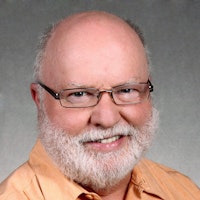The purpose of prayer and religious seeking is to see the truth about reality, is to see what is. And at the bottom of what is is always goodness. The foundation is always love.
Richard Rohr

Always Love
Topic: Love, Compassion, & Kindness
The great challenge of our time is to learn to love everything that is, to see the sacred in the ordinary, and to find the Christ in all people. This is not easy, because we have been trained to see the world in terms of opposites: good and evil, light and dark, beautiful and ugly. But the truth is that everything belongs and everything can be received. We don’t have to deny, dismiss, defy, or ignore. What is, is okay. What is, is the great teacher. The purpose of prayer and religious seeking is to see the truth about reality, is to see what is. And at the bottom of what is is always goodness. The foundation is always love.
Richard Rohr, OFM, born in 1943 in Kansas, is a renowned American Franciscan priest and celebrated writer on spirituality, presently based in Albuquerque, New Mexico. Ordained in the Roman Catholic Church in 1970, Rohr embarked on a spiritual journey that has since garnered widespread attention and respect. By 2011, PBS had recognized him as "one of the most popular spirituality authors and speakers in the world," a testament to his influential presence in contemporary spiritual discourse.
In his pursuit of spiritual growth and community building, Rohr has achieved noteworthy milestones. He attained his Master of Theology degree from the University of Dayton in 1970. The subsequent year saw him founding the New Jerusalem Community in Cincinnati, Ohio. But perhaps his most enduring legacy stems from establishing the Center for Action and Contemplation (CAC) in Albuquerque, New Mexico, in 1986. Here, he has diligently served as the founding director and academic dean of the Living School for Action and Contemplation. Rohr's teachings, embodied in the school's curriculum, revolve around seven themes explored deeply in his book, "Yes, And."
Rohr's contributions to Christian spirituality, while transformative for many, have occasionally faced scrutiny and opposition, especially from certain conservative Catholic factions. These groups have sometimes critiqued his interpretations and teachings as diverging from traditional Catholic orthodoxy. In this context, a defining moment in his career was his meeting with Pope Francis, who gave a heartfelt endorsement to Rohr's book, "The Universal Christ." This endorsement can be viewed as a significant vindication of Rohr's teachings. It not only bridged potential theological divides but also highlighted Rohr's influential and valued position within the broader spectrum of Christian thought and practice.
The Universal Christ
Rohr, Richard. The Universal Christ. 1st ed., Convergent Books, 2019. P. 103.

Richard Rohr
Theme: Love

About Richard Rohr’s Quote [Part One of Commentary]
About Richard Rohr’s Quote [Part Two of Commentary]
Resources
Related Quotes
Copyright © 2017 – 2026 LuminaryQuotes.com About Us